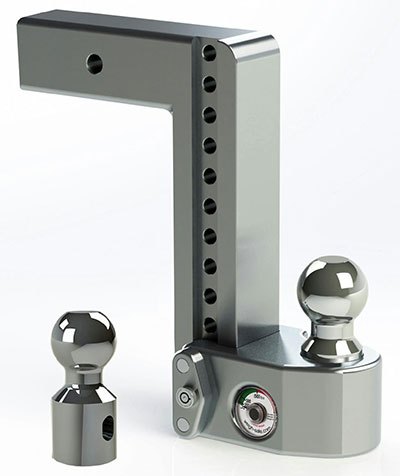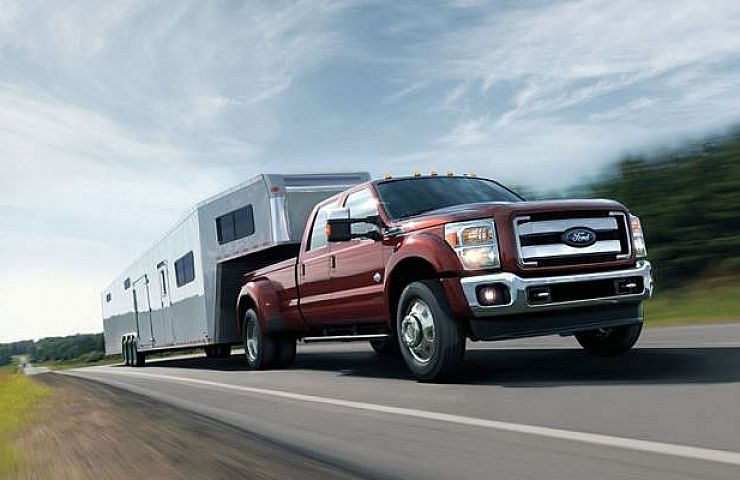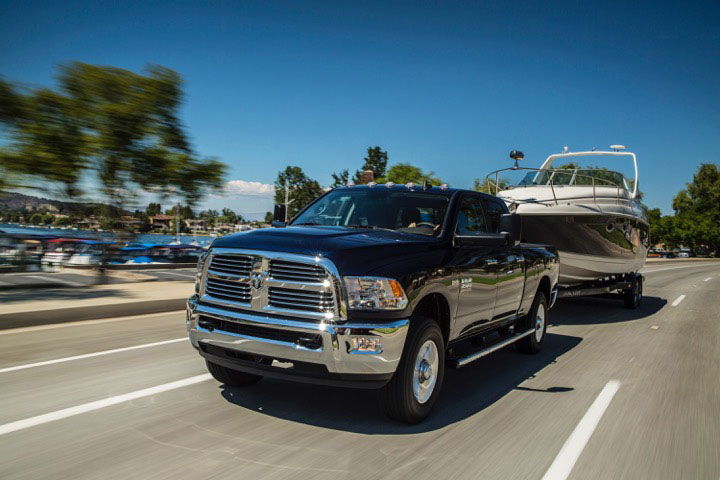The proper tow hitch can make the difference between you and your trailer arriving safely at the campground—or getting stuck on the side of the road.
“Problems that occur during towing often have to do with sway,” said Linda Nelson, sport vehicle editor of Texas Fish & Game magazine and a writer for Boat US. “Sway can be caused by wind or other vehicles around you and can make things particularly difficult on hilly terrain. People pay a lot of attention to their trailer and truck but they don’t pay enough attention to installing the proper hitch.”

Weigh Safe WS10-2.5 Adjustable 10″ Drop Hitch Ball Mount w/ Tongue Weight Scale
If you routinely tow a large trailer or boat, chances are you have a truck equipped with a gooseneck hitch. If towing is more sporadic, you probably use a ball hitch.
Most tow prep packages include a hitch receiver that attaches to the vehicle frame and accepts removable ball mounts. “The key is to use the receiver properly by installing the correct ball hitch,” said Nelson. As a first step she recommends taking the vehicle with tow load attached to a public weigh station, since most people tend to overestimate their load by about 2,000 pounds. The proper hitch shank will make the trailer and hitch connector level.
“The trailer needs to be parallel to the ground to maintain proper traction at all four corners, so the hitch should be adjustable if you tow trailers that are different heights,” Nelson said. Different types of designs include a hitch that flips up and down or an adjustable ball, enabling the driver to change height by up to three inches.
Tongue weight—the downward force that the tongue of the trailer exerts on the hitch—is equivalent to the center of gravity for a loaded trailer. Correct calibration is essential for preventing trailer sway. Most manufacturers recommend that tongue weight is 10 to 15 percent of the trailer’s weight beyond the hitch. Individuals towing trailers or boats longer than 24 feet should consider an adjustable tow hitch that evenly distributes that weight.
“Make sure that the tongue weight doesn’t exceed the capacity of the hitch or vehicle maximum towing capacity,” said Nelson. “If you want the boat you are towing to be bow heavy on the trailer, the hitch is the proper way to make that adjustment.”
Truck and trailer manufacturers often sell tow hitches through their dealerships. Since these hitch designs are compatible with the vehicles, it’s a good place to start looking. Weigh Safe makes a hitch that measures the pressure on the ball and sends it to a built-in scale to give owners the proper tongue weight.
See Weight Distribution Hitches Towing Systems for sale on eBay.






